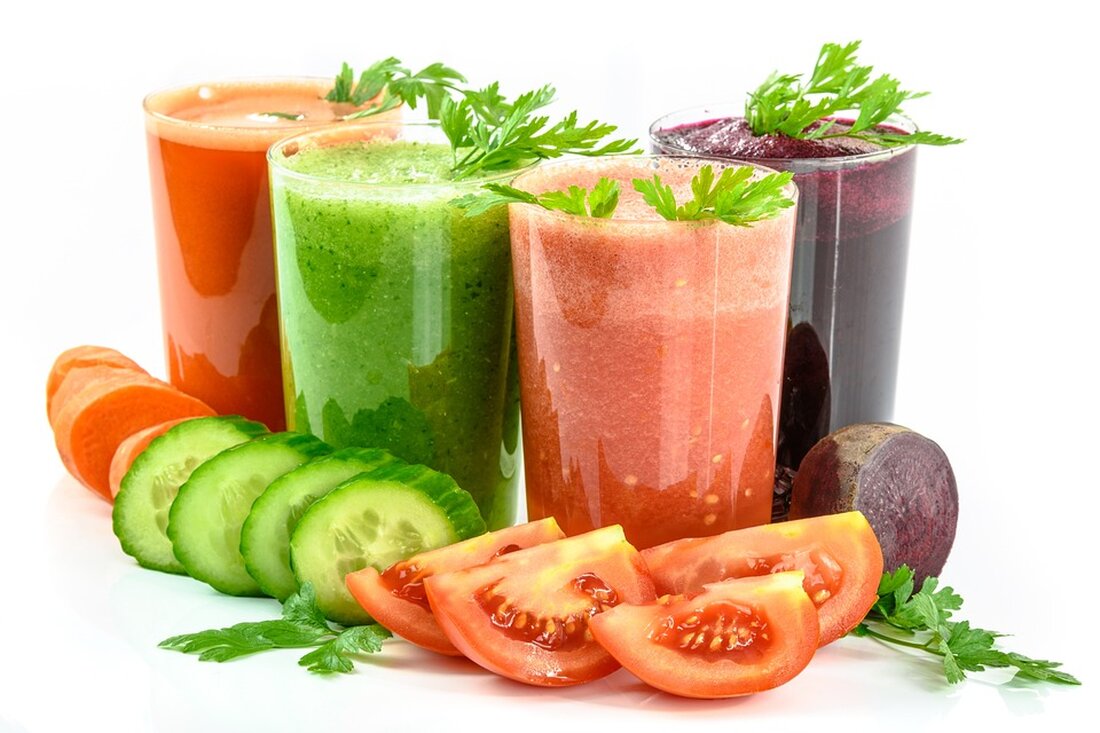Vegetarianism and Veganism: Health Aspects
Vegetarianism and Veganism: Health Aspects Ethical and ecological reasons often play a role when deciding on a vegetarian or vegan diet. But the health aspects should also be carefully considered. This article highlights the pros and cons of vegetarianism and veganism from a health perspective. What is vegetarian diet? The vegetarian diet excludes the consumption of meat, fish, poultry and seafood. However, some vegetarians may still consume animal products such as eggs or dairy. There are different subcategories of vegetarianism, including lacto-ovo-vegetarians (eat eggs and dairy products), lacto-vegetarians (do not eat eggs, but eat dairy products), and ovo-vegetarians (eat no dairy products,...

Vegetarianism and Veganism: Health Aspects
Vegetarianism and Veganism: Health Aspects
Ethical and ecological reasons often play a role when deciding on a vegetarian or vegan diet. But the health aspects should also be carefully considered. This article highlights the pros and cons of vegetarianism and veganism from a health perspective.
What is vegetarian diet?
The vegetarian diet excludes the consumption of meat, fish, poultry and seafood. However, some vegetarians may still consume animal products such as eggs or dairy. There are several subcategories of vegetarianism, including lacto-ovo-vegetarians (eat eggs and dairy products), lacto-vegetarians (do not eat eggs but eat dairy products), and ovo-vegetarians (eat no dairy products but do eat eggs).
What does vegan diet mean?
Vegans practice an even stricter approach than vegetarians. You completely avoid all animal products including meat, fish, poultry, dairy products, honey and gelatin or other food ingredients of animal origin.
Effects of vegetarian/vegan food on human health
Switching to a vegetarian or vegan diet affects human health in different ways. Below we look at both the positive and potential negative impacts in more detail.
1. Benefits of a vegetarian/vegan diet
A) Reduced risk of chronic diseases
A vegetarian or vegan diet has the potential to reduce the risk of various chronic diseases. Numerous studies have shown that vegetarians and vegans may have a lower risk of cardiovascular disease, high blood pressure, type 2 diabetes and certain types of cancer. This may be because plant-based foods are often lower in saturated fats and rich in fiber and antioxidant nutrients.
B) Weight management
Controlling body weight is an important aspect of health. A vegan or vegetarian diet can help maintain a healthy weight or lose weight. Plant-based foods are often lower in calories and higher in fiber than animal products. Eating more vegetables, fruits and whole grains can increase calorie consumption while achieving greater satiety.
C) Improved metabolic health
Vegetarians and vegans often have a favorable metabolic status due to their diet. Regular consumption of plant proteins ensures that many essential nutrients, such as vitamins and minerals, are supplied in sufficient quantities. Additionally, a vegan or vegetarian diet can lower cholesterol and improve insulin sensitivity.
2. Potential disadvantages of a vegetarian/vegan diet
A) Nutrient deficiencies
A vegan diet can lead to certain nutritional deficiencies if not carefully planned. Some important nutrients may need to be supplemented from sources other than animal products:
– Vitamin B12: This vitamin is found almost exclusively in animal products and is important for the formation of red blood cells and the nervous system.
– Iron: Plant sources of iron are not as easily absorbed by the body as animal heme iron. Vegans should make sure to eat enough iron-rich foods and at the same time foods rich in vitamin C to increase the absorption of plant-based iron.
– Omega-3 fatty acids: Although these essential fatty acids are also found in some plant sources such as flaxseeds or walnuts, they are significantly less in comparison.
It is therefore important for vegetarians, and especially vegans, to ensure that their diet contains all the necessary nutrients. Advice from a qualified nutritionist can help with this.
B) Restrictions on food choices
A vegetarian or vegan diet can limit your possible food choices. If not planned properly, meals can become repetitive and lack variety. It is important to ensure a balanced diet to get a wide range of nutrients.
Frequently Asked Questions (FAQs)
Q1: Can vegan diet provide all necessary nutrients?
Yes, with careful planning, a vegan diet can provide all the nutrients you need. However, special attention should be paid to the intake of vitamin B12, omega-3 fatty acids and iron.
Q2: Is vegetarian/vegan diet suitable for children?
Yes, both vegetarianism and veganism are possible for children. However, it is especially important to ensure that they receive all the necessary nutrients to support healthy growth and development. Monitoring the child's diet by a qualified pediatrician or nutritionist is recommended.
Conclusion
Vegetarianism and veganism have their advantages and disadvantages in terms of human health. A well-planned vegetarian or vegan diet can reduce the risk of chronic diseases and improve weight management and metabolism. However, there is also a risk of certain food deficiencies, especially with a vegan diet. A balanced diet and, if necessary, advice from a qualified nutritionist can help avoid possible deficiencies and maintain a healthy vegetarian or vegan lifestyle.

 Suche
Suche
 Mein Konto
Mein Konto
